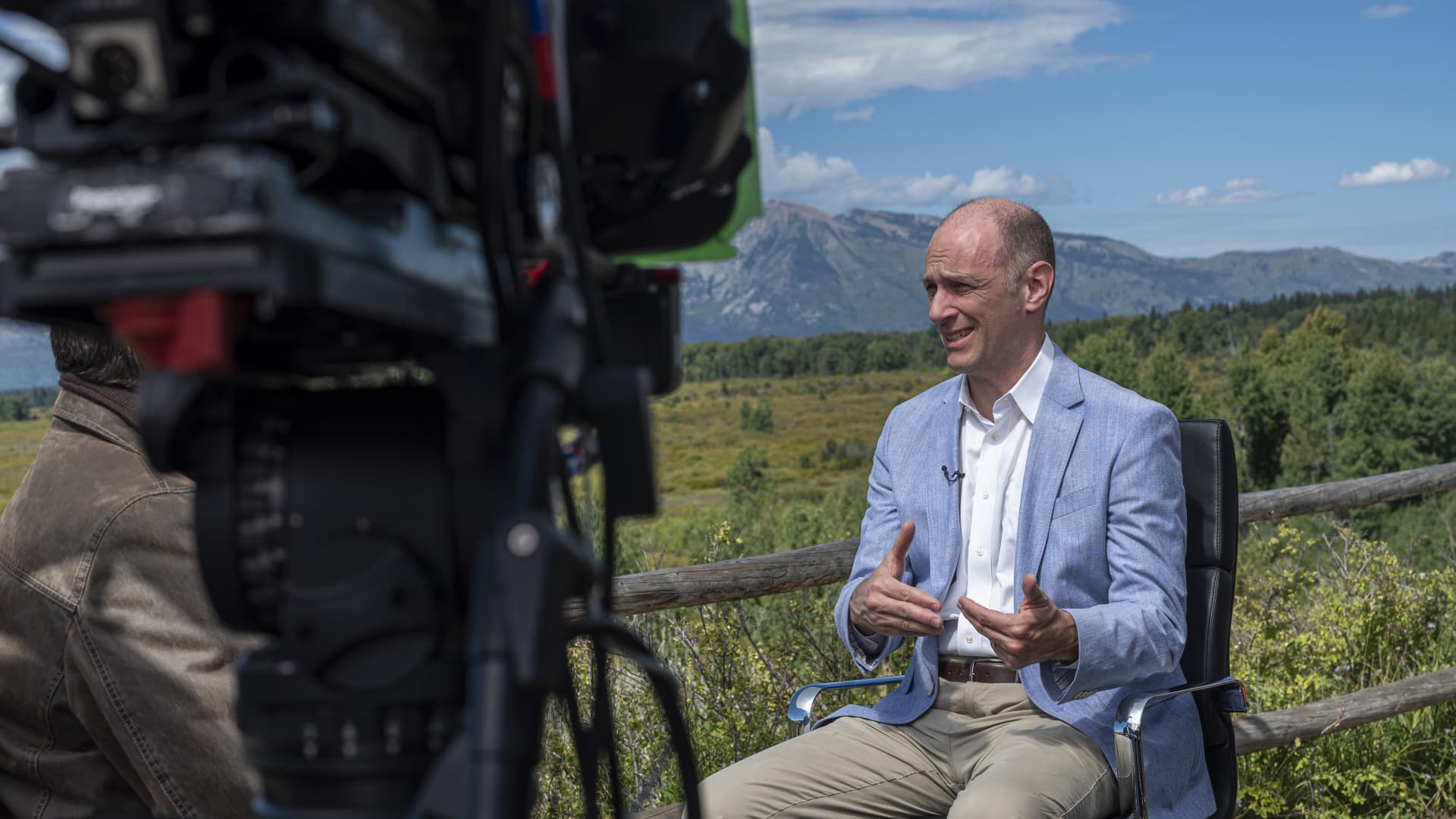This report is from today’s CNBC Daily Open, our new, international markets newsletter. CNBC Daily Open brings investors up to speed on everything they need to know, no matter where they are. Like what you see? You can subscribe here.
What you need to know today
A fierce winning streak
U.S. stocks rose Tuesday to hit fresh winning streaks, their longest in three years. Europe’s Stoxx 600 closed 0.16% lower. The oil and gas sector dropped 2.5%, weighed down by Saudi oil giant Aramco’s 23% fall in third-quarter net profit and a decline in oil prices. UBS shares rose 1.83% after the bank reported its first full quarterly results since taking over Credit Suisse.
Microsoft closes at a high
Microsoft shares climbed 1.12% to hit $360.53, a record high. It’s the eighth consecutive day in which the technology giant’s shares rose, a streak unseen since January 2021. Investors cheered Microsoft CEO Satya Nadella’s surprise appearance at OpenAI’s event, where he encouraged developers to build with Microsoft’s Azure cloud infrastructure.
Peak, not pause?
The U.S. Federal Reserve, European Central Bank and the Bank of England all paused interest rate hikes in recent weeks. This breather comes after dramatic hikes over the last 18 months as central banks grappled with unruly inflation. Some market watchers, in fact, think this lull in hikes isn’t so much a pause but the peak in rates — and are turning their attention to when central banks will start cutting.
Uber’s miss
Uber’s third-quarter results missed analysts’ expectations. The company’s earnings per share came in at 10 cents, compared with the expected 12 cents. Revenue was $9.29 billion, less than the $9.52 billion estimated. Still, on a year-over-year basis, Uber made a net income of $221 million, compared with a net loss of $1.2 billion, while revenue’s up 11% from the same period last year. Shares popped 3.7%.
[PRO] Japan banks to benefit
The Bank of Japan announced last week it would allow more flexibility in its yield curve control policy, taking the upper bound of 1% yield for the 10-year Japan Government Bond “as a reference.” That’s good news for the banking sector, said Goldman Sachs. The investment bank also named its top picks among Japan’s banks, suggesting they would enjoy up to 20% upside on their stock prices.
The bottom line
Last month’s sudden surge in Treasury yields and oil prices — both of which tend to suppress investors’ appetite for stocks — looks to be ending. No, scratch that — the increases aren’t just ending, they’re ebbing.
Look at oil: Contracts for both West Texas Intermediate and Brent futures fell around $3. WTI’s now at $77.13 a barrel while Brent’s $81.41, their lowest since July. That’s almost $10 per barrel less compared with a month ago, when prices jumped on fears triggered by the Israel-Hamas conflict.
Meanwhile, the 10-year Treasury yield fell around 10 basis points to 4.569% and the 2-year yield slipped 3 basis points to 4.915%. As Treasury yields serve as the benchmark for interest rates on loans and cash investments, sinking yields generally benefit rate-sensitive companies more. In other words: the Magnificent Seven Big Tech. Amazon led the pack, shooting up 2.13% yesterday.
That explains why the Nasdaq Composite jumped 0.9%, more than the S&P 500’s 0.28% gain and the Dow Jones Industrial Average’s 0.17% increase. Still, that’s not downplaying the movements. The S&P and Dow are enjoying their seventh consecutive session of gains, while the Nasdaq’s basking in its eighth.
If the U.S. Federal Reserve does indeed steer the economy to a soft landing, in which inflation is contained below 2% without the economy contracting, then there could be a further rally in stocks, said HSBC. Within periods of soft landings, the S&P has jumped, on average, 22% in the space between a pause and six months after rate cuts begin, noted HSBC’s global equity strategist Alastair Pinder.
And that immaculate disinflation isn’t just a dream. Chicago Federal Reserve President Austan Goolsbee told CNBC, “Because of some of the strangeness of this moment, there is the possibility of the golden path … that we got inflation down without a recession.”
Both the economy and markets have truly acted in strange, unprecedented ways ever since the pandemic. From one of the worst years for stocks and bonds in 2022, to a widely heralded bull rally in the S&P — and then a correction — in 2023. And I haven’t even started on the U.S. labor market and inflation numbers. Strange may be new and unsettling, but it isn’t necessarily bad.

